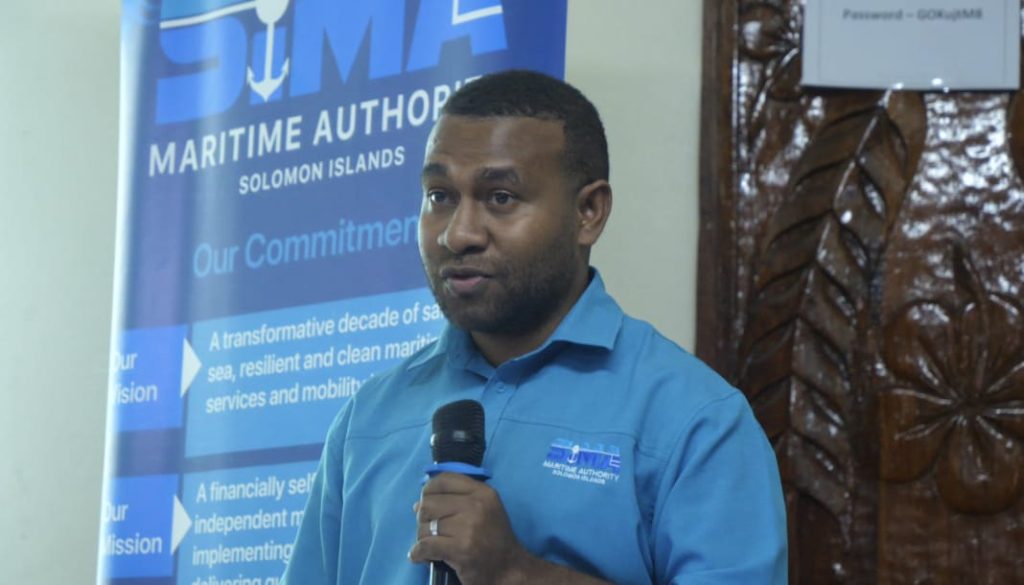Solomon Islands shipping operators have been advised to prepare for costly but inevitable changes in global shipping regulations as the International Maritime Organization (IMO) pushes forward with climate measures.
At a national seminar in Honiara on Tuesday, maritime experts and officials stressed the importance of aligning Solomon Islands’ domestic shipping policies with international rules, warning that while changes will initially target large international vessels, domestic fleets will also be affected in the near future.
Dr. Michael Prehn, a maritime law specialist with more than 25 years of experience at the IMO and long-time advisor to the Solomon Islands Maritime Authority (SIMA), said the transition to greener shipping is unavoidable.
“The transition is going to be costly when it comes. But with better IMO regulation, we may come through it better than without. The future is uncertain, but the certainty is that It is going to change,” Dr. Prehn told participants.
He highlighted that Solomon Islands has been a central player in IMO climate negotiations for more than eight years, including co-sponsoring a global carbon levy proposal designed both to cut emissions and generate revenue to support Pacific Small Island Developing States (SIDS).
“The next step is to work through the details of implementation so that the system is both efficient in creating the transition and provides financial support to those who need it most,” Dr. Prehn said.

Allen Kisiofea, SIMA’s Executive Office Manager, emphasized that the seminar was crucial for local ship operators and maritime stakeholders to grasp what lies ahead.
“At the IMO, regulations currently target large ships above 5,000 gross tonnage, but in the long term the impact will reach domestic fleets. Solomon Islands has about 173 vessels operating within our islands, so it is important that we follow what is happening and influence decisions to reflect our needs,” Kisiofea explained.
He noted that In the past, IMO decision-making was dominated by larger countries, often sidelining smaller nations. But consistent advocacy including contributions from experts like Dr. Prehn has ensured that Solomon Islands and its Pacific neighbors now have a stronger voice in shaping global rules.
Both speakers underscored the need for stronger two-way engagement: regulators must listen more to feedback from the local shipping industry, while operators must also be proactive in tracking global changes.
“Solomon Islands’ ship operators still have time,” Dr. Prehn reassured. “The first regulations will apply to international vessels, but domestic operators should observe those rules closely so they can prepare for similar requirements in the future.”
The seminar marks an important step in preparing the Solomon Islands’ shipping sector for the IMO’s tightening climate rules, ensuring that local operators are not left behind as global maritime regulations move toward a low-carbon future.
By George Maelagi
Solomon Star Online










